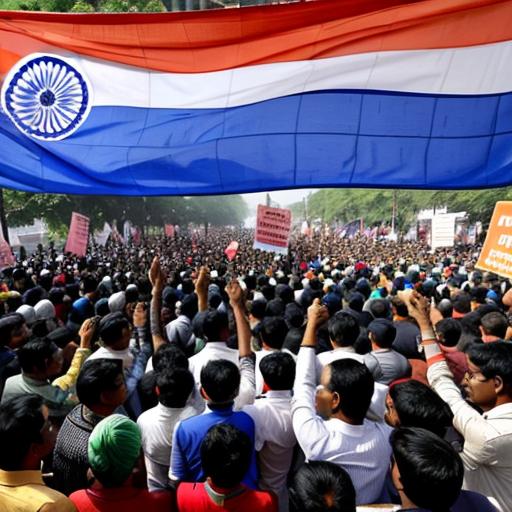Introduction:
In recent years, India has witnessed a surge in social justice movements that address issues ranging from caste discrimination and gender inequality to economic disparity. These movements, fueled by passionate activism and a call for systemic change, have not only resonated across society but have also begun to shape the political landscape. In this blog, we delve into the impact of social justice movements on Indian elections, exploring the dynamics of their influence and the evolution of political narratives.
- The Rise of Social Justice Movements: From the historic struggles for Dalit rights to contemporary movements advocating for gender equality and economic justice, India has seen a growing wave of social justice activism. These movements, often driven by grassroots initiatives, have sparked conversations and challenged the status quo.
- Changing Political Discourse: Social justice movements have forced political parties to reevaluate their platforms and engage with issues that have long been relegated to the sidelines. The discourse around inclusivity, affirmative action, and equal representation has become central to political campaigns, reflecting the changing aspirations of the electorate.
- Youth Mobilization: Many social justice movements draw significant support from the youth, who are often at the forefront of activism. This demographic, increasingly vocal about social issues, has the potential to influence elections as political parties vie for their support and address their concerns.
- Inclusivity in Political Representation: The demand for greater inclusivity in political representation has gained traction. Social justice movements have called for the inclusion of marginalized communities in decision-making processes, prompting political parties to field candidates from diverse backgrounds and address historical inequalities.
- Policy Reforms and Legislative Changes: The impact of social justice movements extends beyond rhetoric, with tangible policy reforms and legislative changes being advocated. Issues like reservation policies, anti-discrimination laws, and economic empowerment measures are brought to the forefront, influencing the political agenda.
- Electoral Strategies and Alliances: Political parties, cognizant of the influence of social justice movements, strategically align themselves with the causes championed by these movements. Alliances with activists and community leaders become crucial electoral strategies, demonstrating a commitment to social justice issues.
- Media and Information Dissemination: Social media plays a pivotal role in amplifying the voices of social justice movements. The rapid dissemination of information and real-time updates shape public opinion, creating an environment where political candidates are compelled to address the concerns raised by these movements.
- Challenges and Critiques: While social justice movements bring about positive change, they also face challenges and critiques. Some argue that these movements may be susceptible to co-optation by political agendas, while others question the sustainability of their impact over time.
Conclusion:
As social justice movements continue to gain momentum, their influence on Indian elections becomes increasingly pronounced. The evolving relationship between activism and politics underscores the need for a responsive and inclusive political landscape. By analyzing this dynamic interplay, we gain insights into how social justice movements are reshaping electoral dynamics and contributing to the evolution of a more equitable and socially conscious democracy.

